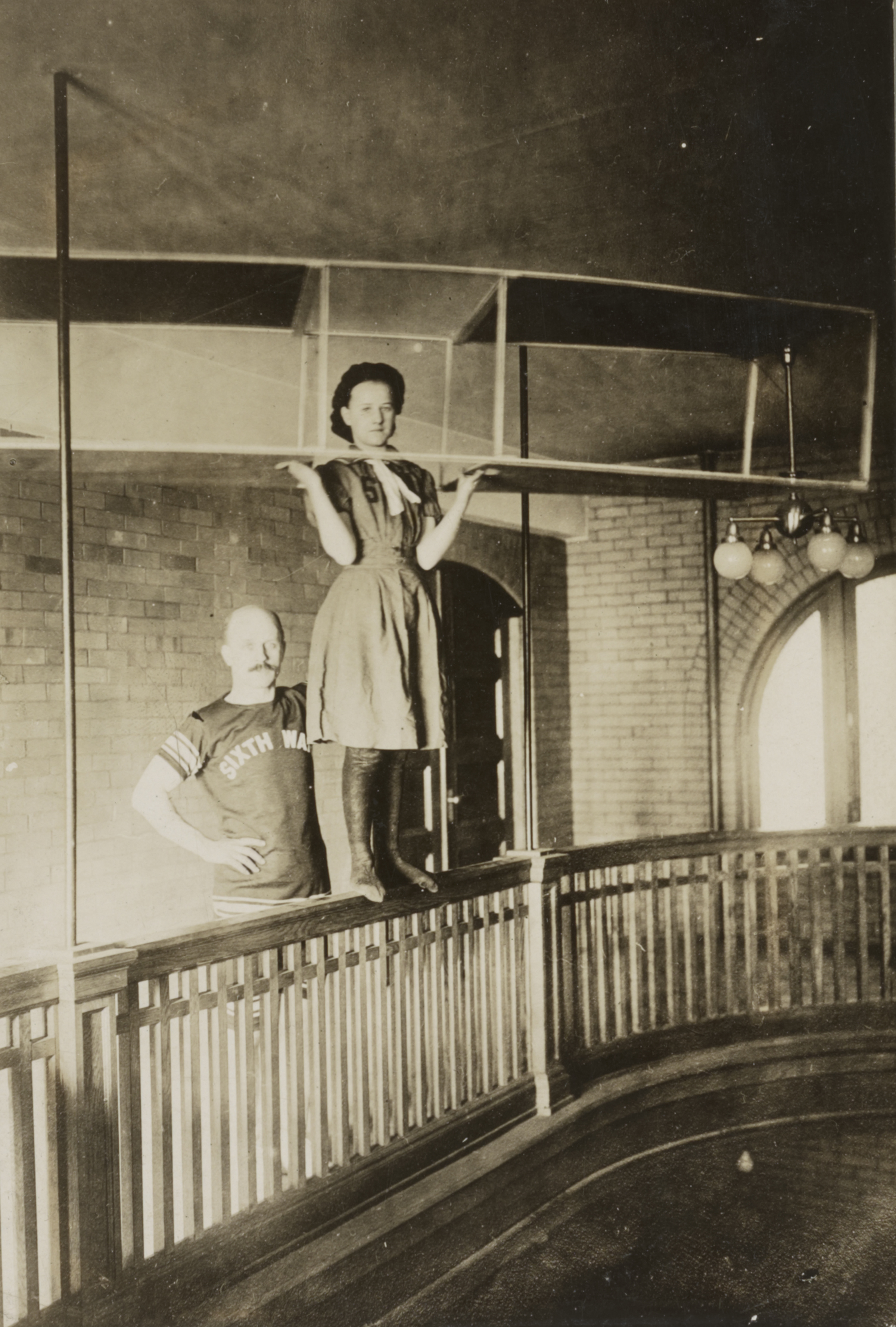
A woman standing on a railing, holding a plane wing structure on her shoulders, 1910. Library of Congress, Prints and Photographs Division, George Grantham Bain Collection.
• “Orientalism, in Said’s description, is a discourse of the powerful about the powerless, an expression of ‘power-knowledge’ that is at the same time an expression of narcissism. The syndrome is very much in evidence today.” (NYR Daily)
• Niagara Falls as a place commemorating human meddling. (Smithsonian)
• On the anchoresses under the church, thinking about death. (London Review of Books)
• “Recovering ancient and premodern cultures of swimming.” (JHIBlog)
• Finding the ancient people who lived along the Dead Sea. (Archaeology)
• “Please Look at King Edward VII's Custom-Made Sex Chair.” (Pictorial)
• “Thomas Jefferson fell in love with French food when he served as the American ambassador to France in the 1780s. He transcribed many recipes including one for ‘ice cream,’ using egg-yolk custard simmered with ‘a stick of vanilla.’ When he became president in 1801, Jefferson served these dishes in the White House—his import eventually became a classic American desert.” (1843)
• The criminalization of abortion began as a business tactic. (History.com)
• Memorializing the place where Alex Haley worked. (Gothamist)
• Harriet Tubman will not be appearing on American currency anytime soon. (New York Times)
• The history of Muslims who lived in early America. (Aeon)
• A map of LGBTQ history in New York City. (National Geographic)
• “How could any teacher think these historical games were good ideas?” (Slate)
• How Memorial Day went from emphasizing the “memorial” to emphazising the “three-day weekend.” (JSTOR Daily)
• This week in obituaries: Binyavanga Wainaina, a scientist intrigued by UFOs, the doctor who made Baby Fae famous, a children’s book author and illustrator, and Herman Wouk.